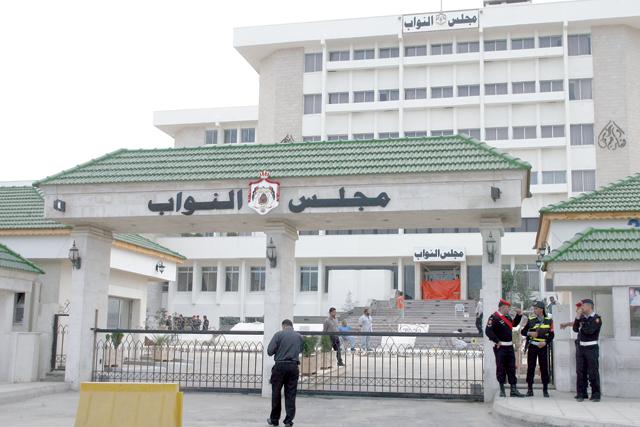You are here
Stage not mature for parliamentary gov’t, analysts say; gov’t says road paved
By Khetam Malkawi - Jun 05,2016 - Last updated at Jun 05,2016

A view of the Parliament building in Abdali, Amman. Analysts argue that the upcoming polls, expected within four months, will not yield a mature parliamentary government (File photo)
AMMAN — Analysts do not expect the coming elections to see a mature parliamentary government experience, citing lack of “essential ingredients” for such a transformation.
In response, a senior government official blamed the political parties for their failure to appeal to the masses and to offer platforms for the envisioned change in a way that would enhance public involvement in political life.
An optimist said that the formation of consistent and visionary parliamentary blocs can be a good start to reach the finish line.
In separate interviews with The Jordan Times this week, the analysts cited effective political parties, an election law designed to transform the political landscape towards a parliamentary government system and the right public attitude as the cornerstones of the envisioned democratic structure.
For Samih Maaytah, former state minister for media affairs and communications, a parliamentary government system needs a special infrastructure and platform-based elections to have a strong parliament with cohesive blocs.
The upcoming polls, expected within four months, would not yield the desired fruit, he argued.
His Majesty King Abdullah dissolved the Parliament early last week, and a new government led by Hani Mulki replaced that of Abdullah Ensour. The main job of the new Cabinet is to facilitate the work of the Independent Elections Commission, which administers national polls.
The new electoral system is based on an at-large voting system, in which candidates can run on one large multimember ticket at the constituency level.
The bill divides the Kingdom into 23 electoral districts, one for each of the 12 governorates, except for Amman, which was split into five districts, Irbid into four and Zarqa into two.
The law also stipulates that the ticket includes no less than three candidates and does not exceed the number of seats allocated for the constituency in which the ticket is competing.
Under the bill, each eligible voter can only pick one list and has then to name the candidate(s) he/she has chosen from the ticket.
Oraib Rentawi, a political analyst and columnist, agrees with Maaytah. He gives credit to the new law for discarding the notorious one-person-one-vote system, but expected it would fail to lay the right foundation for future parliamentary governments.
“Although the new bill is still much better than the previous one, it does not live up to the expectations of reformists,” Rentawi told The Jordan Times.
Minister of Political Development and Parliamentary Affairs Musa Maaytah disagreed, noting that the “current Election Law does encourage political parties to evolve into stronger organisations”.
The minister added that reaching a stage where Jordan has a parliamentary government is a “gradual process that starts with House blocs as the building stones of the new system”.
Both Samih Maaytah and Rentawi insisted that with no powerful and well-established political parties, there would be no parliamentary governments and that the new law does not ensure adequate representation of political parties at the Lower House.
The first analyst expected that out of the 130 parliamentary seats, politicians representing political parties would not win more than 25.
The existing parties are “shallow and ineffective”, both pundits said, a matter that would make the reform process’ endgame a far-fetched possibility.
The minister, in his first ever remarks to the media after his appointment in his post, said that having a parliamentary government depends on the political parties’ preparedness for the envisaged change and their ability to market the idea to the masses.
He underlined that in the King’s Letter of Designation to the new premier, His Majesty the King encouraged the public to vote based on programmes.
His argument was backed by Fahed Khitan, also a political analyst and columnist.
He argued that having parliamentary governments in Jordan in the coming few years depends on how much reformists are serious about this move.
Khitan said if the blocs to be formed within the Parliament were solid, and their members were keen on reform, this would be the starting point towards forming a government from within the House.
He argued that the parliamentary blocs can be the nuclei of political parties in the future, stressing that this depends on how political reform is progressing.
Amid all this, it also matters how the people perceive the process.
Jamal Shalabi, a professor of political science at the Hashemite University, said the public opinion is still not ready for this transformation and such a move needs five to 10 years of evolution.
Shalabi argued that under the regional circumstances, political reform is not a priority, and he agrees to that, and the Kingdom needs to focus more on security and stability in line with the current regional unrest.
If reformists have a different perspective, the minister and Khitan believe they should not miss the opportunity of the election race and take it from there.













